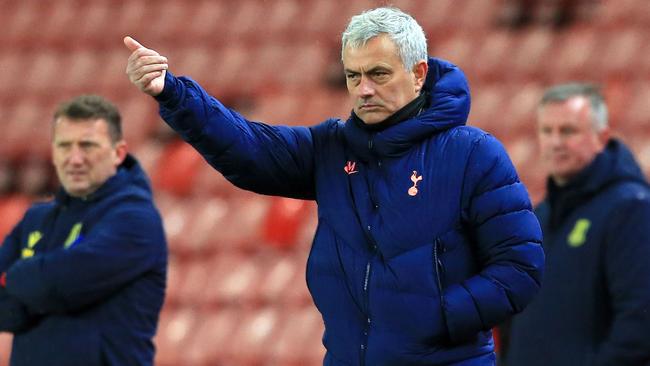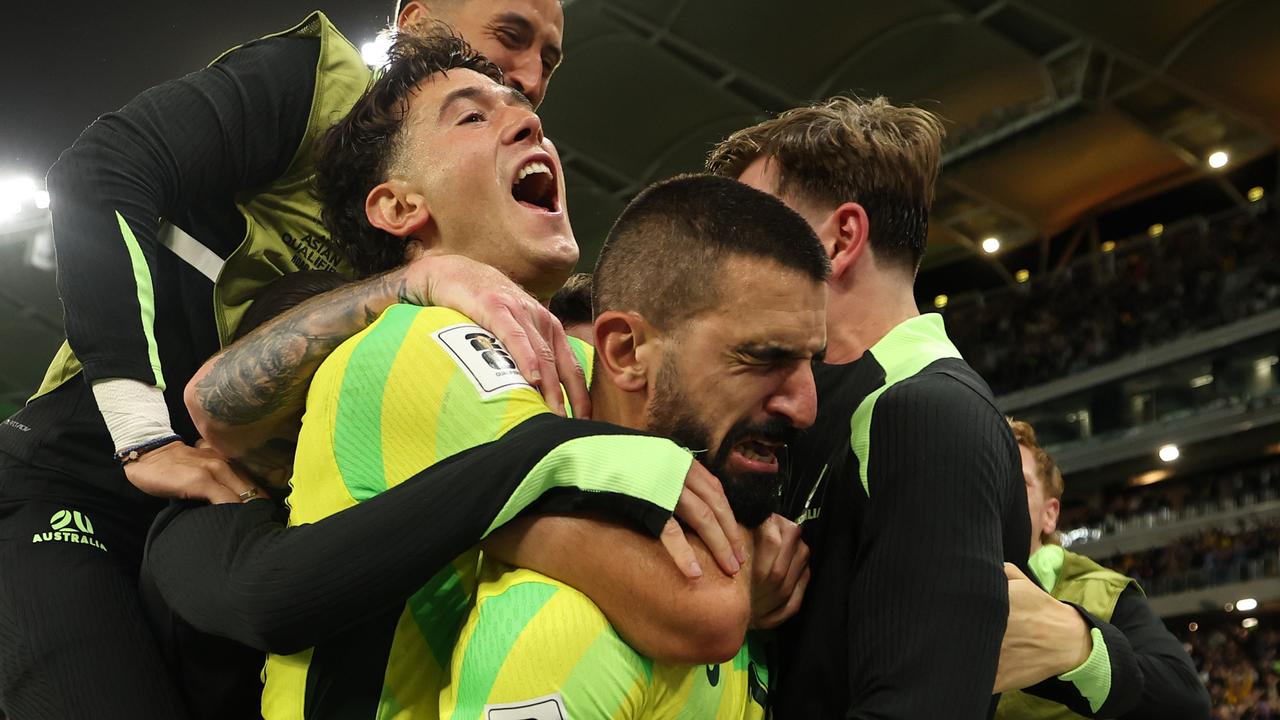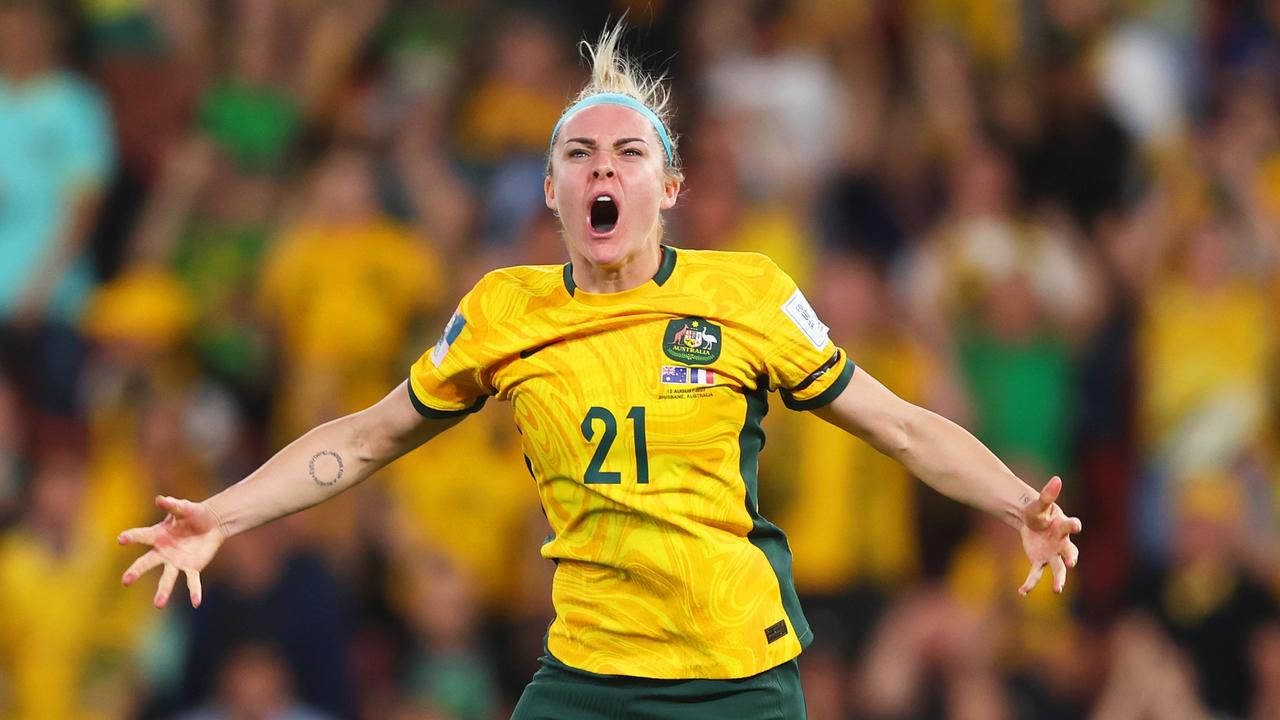Graduates of the School of Jose dominate the Premier League
A quarter of the Premier League’s managers have been shaped, in some way, by schooling involving Jose Mourinho

When Jose Mourinho managed Real Madrid, two young English coaches visited the club. The hospitality and culture left an impression on them. They got the full tour of the Ciudad Real Madrid training complex, spent time with the Academy director and watched Mourinho train the first team. Don’t bring business cards, they were told, bring a book.
The idea was that in return for the learning experience being given to them, they should give some wisdom back and the books were placed in the Real Madrid library. One of these coaches went on to manage in the Premier League: Brighton & Hove Albion’s Graham Potter. He is one of a growing number of opponents Mourinho faces, having been an influence upon them.
The idea of a “school of Jose” may not sit comfortably with its protagonist, given his distaste for “philosophers” in football but as the story of Potter’s study visit illustrates, Mourinho has a generous, almost humble, side when it comes to education, which runs contrary to the solipsistic “Special One” image of cliche.
Ben Garner, who recently left his job as Bristol Rovers manager, is another with warming testimony. Garner was a Crystal Palace youth coach when he wrote to Mourinho, who ended up helping him pass the UEFA Pro Licence course and became a mentor. Frank Lampard and Scott Parker learnt under Mourinho as players while Brendan Rodgers developed core ideas about how to train a team as a youth coach when Mourinho arrived and revolutionised the club’s technical thinking with his devotion to the Portuguese blueprint of “tactical periodisation”.
A quarter of the Premier League’s managers have therefore been shaped, in some way, by schooling involving Mourinho and the one most influenced by it hosts the Tottenham Hotspur head coach at Molineux when Spurs take on Wolverhampton Wanderers early on Monday. Wolverhampton manager Nuno Espirito Santo was No 2 goalkeeper at Porto when Mourinho, like a new comet in the sky, scorched his way to the top strata of European coaching in the first half of the Noughties. He sat in the dugout closely observing his boss while Mourinho won two domestic titles, the UEFA Cup and finally Champions League in an astonishing flurry from 2002 to 2004.
Of the seven players who were with Mourinho on the bench at Arena AufSchalke when Porto beat Monaco 3-0 in the 2004 Champions League final, five went into coaching. They include Nuno, the former Lithuania manager Edgaras Jankauskas and Benni McCarthy, who this month became head coach of AmaZulu FC. Five of Porto’s starting line-up took up coaching too, among them Ricardo Carvalho — assistant manager at Marseilles — and Costinha, whom Mourinho always described as “my coach on the pitch”.
Nuno is the most successful Mourinho scion, though. Some of their ideas are very different. Nuno believes in a “no conflict” model of workplace dynamics, whereas Mourinho will sometimes go out of his way to disrupt harmony, seeing creative tension as a performance tool. Nuno sees media duties as an encumbrance where Mourinho is of the Sir Alex Ferguson mindset that back pages and broadcast post-match interviews can be weaponised to his benefit.
Their similarities are more striking than their disparities. Central to their playing philosophies is the principle that games are won and lost on transitions, and structuring ways of moving between attack to defence is where the coach does their most important work. In an age of jumbo squads, Nuno and Mourinho believe in small ones. Both are serious about the details of the game. When he arrived at Porto, Mourinho announced he was going to “Portuguesify” his team and did so — his starting XI at the AufSchalke comprised nine homegrown players. Nuno has certainly been part of a “Portuguesification” process of Wolverhampton, hand-in-hand with Jorge Mendes — agent to both managers.
Nuno developed, from Mourinho, a sense that the collective comes before the individual and one of his biggest lessons involved not something Mourinho did but what Mourinho did not do, in a particular instance. The day before matches, the Porto squad trained in the morning and was expected to go home and rest before reassembling at 5pm to travel by bus to their hotel. Except a habit began to form. The players would eat lunch in the training-ground canteen and linger, chatting and continuing to refill their plates.
“It became a routine, a tradition and it was special,” Nuno said. “Sometimes we would go to dinner (at the team hotel) and everybody was eating only the soup, because at lunch we had eaten everything, but at those lunches it was almost like we were building bonds of commitment. I remember every conversation would finish with the game: what we were going to do. Like betting — ah, are you going to score? I bet you don’t score — that kind of thing.
“Mourinho wasn’t there, and that’s why he is so good — because he read it and he saw it and it was something that the players had together and he didn’t mess with it.
“That’s why I think (coaching) is all about. When special people meet and they gel, you have something special. The beginning of everything is that.”
Tactical periodisation was invented by Vitor Frade, a professor of physical education and philosophy at the University of Porto. Its fundamental tenet is that the elements of football — technical, physical, tactical and mental — cannot be separated and every training exercise should incorporate all four. This had been grasped intuitively by some of England’s greatest teams, for example Liverpool in the 1970s and 1980s, where training revolved around small-sided games, but the prevalent English coaching approach was heavy on running and drills focused on individual functions (like passing).
Mourinho was a disciple of Frade, making him Porto’s “director of methodology” and has played the biggest part of any coach in spreading Frade’s doctrine. It seemed revolutionary to those at Chelsea when Mourinho brought it with him in 2004. Even Pep Guardiola and Jurgen Klopp use ideas derived from it — and Klopp’s influential No 2, Pep Lijnders, spent his formative coaching years at Porto from 2006 to 2014 where the dominant ideas were still Mourinho’s.
Because of tactical periodisation, coaches who help Mourinho prepare his teams have to be immersed in his principles. Andre Villas-Boas, Rui Faria, Aitor Karanka and the Scotland manager Steve Clarke have jumped from being Mourinho’s assistant coaches into management and Joao Sacramento, Tottenham’s No 2, is tipped to be next. Like Rodgers, Villas-Boas and Clarke, Sacramento took his Pro Licence via the fabled Scottish Football Association course at Largs. The star pupil of his intake was Nuno and Nuno was following Mourinho, who came to the Ayrshire town to complete his coaching badges.
The SFA course has benefited from a great lineage of Scottish managers including Jock Stein and Ferguson, who were regular tutors and Ferguson, 79 on Thursday, remains a defining influence. Seven of England’s 92 League managers played for him, the latest being Wayne Rooney. The “Fergie school” will last but the “School of Jose” is growing.
“A much better manager than a player,” Mourinho said of Nuno last year and he meant it as a compliment.
The Sunday Times



To join the conversation, please log in. Don't have an account? Register
Join the conversation, you are commenting as Logout